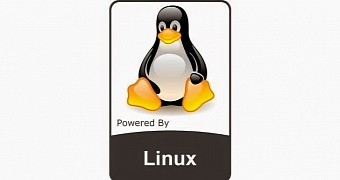After announcing the release of Linux kernel 4.2.6, Linux kernel 4.1.13 LTS, and Linux kernel 3.10.93 LTS, renowned kernel developer and maintainer Greg Kroah-Hartman published details about the fifty-seventh maintenance release of the Linux 3.14 LTS (Long-Term Support) kernel series.
According to the diff from the previous maintenance version, Linux kernel 3.14.57 LTS is a pretty important milestone in the release cycle of the long-term supported kernel branch, bringing various improvements to the x86, ARM64 (AArch64), and PowerPC (PPC) hardware architectures, along with a few crypto and mm changes. In numbers, Linux kernel 3.14.57 LTS changes 40 files, with 212 insertions and 108 deletions.
"I'm announcing the release of the 3.14.57 kernel. All users of the 3.14 kernel series must upgrade," said Greg Kroah-Hartman in the release announcement. "The updated 3.14.y git tree can be found at: git://git.kernel.org/pub/scm/linux/kernel/git/stable/linux-stable.git linux-3.14.y and can be browsed at the normal kernel.org git web browser: http://git.kernel.org/?p=linux/kernel/git/stable/linux-stable.git;a=summary."
Updated GPU and Wireless drivers
Of course, there's no maintenance release of a Linux kernel without updated drivers. Thus, we can confirm that Linux kernel 3.14.57 LTS brings a lot of them, especially for things like block, GPU (Intel i915, Radeon, and Nouveau), InfiniBand, IOMMU, MD-RAID, networking (mostly Wireless), SCSI, SPI, iiO, TTY, USB, and vhost. There are also various other minor yet significant under-the-hood improvements.
With this announcement, we're urging all GNU/Linux users who are running an operating system powered by a kernel from the Linux 3.14 LTS series to upgrade to the Linux kernel 3.14.57 LTS release as soon as possible. This can be done either by checking for the new version in the default software repositories of the respective distribution or by downloading the Linux kernel 3.14.57 LTS sources via Softpedia or from the kernel.org website.

 14 DAY TRIAL //
14 DAY TRIAL //